Models holding hands, Lagos, Nigeria, 2019 by Stephen Tayo. Courtesy Lagos Fashion Week Africa. (Photo Credit: Forbes)
African fashion, along with the continent’s music and art, is having an huge impact on the world stage — and at UoF, we’re here to support it.
Did you know that Nigeria ranks in the top 5 countries of UoF subscribers!
International superstars like Naomi Campbell, Zendaya, Tracee Ellis Ross, Angela Bassett, and Beyoncé have helped catapult some of Africa’s talented fashion designers into the limelight. In fact, Queen B wore a number of African designers in the 2020 American musical film and visual album, Black Is King, directed, written, and executive produced by the recording artist. But the African fashion industry has had to jump lots of hurdles to get here.
The Suppression of Africa’s Fashion Industry
According to the Historical Dictionary of the Fashion Industry, Africa, like many other developing countries, has been plagued with the importation of used clothes and shoes from outside the region. This practice created an unfair advantage in local communities and thus stifled industrial growth, especially in Africa’s design and manufacturing sector. Despite imposing high importation customs duty rates in some African countries, used products continued to flood local markets. The textile industry in South Africa all but collapsed as a result of imported second-hand clothing sales and eventually efforts got underway in other African states to prevent the same thing from happening. In 2015, the Zimbabwe government banned the importation of second-hand clothes and shoes and removed the general import license so that future importations were subject to seizure and destruction. In 2016, The East African Council (EAC) Council of Ministers, composed of six countries in the African Great Lakes region, Burundi, Kenya, Rwanda, South Sudan, Tanzania, and Uganda, voted to ban second-hand clothes, handbags and shoes, to promote the region’s textile and leather industries. These measures paved the way for Africa’s fashion industry to succeed.
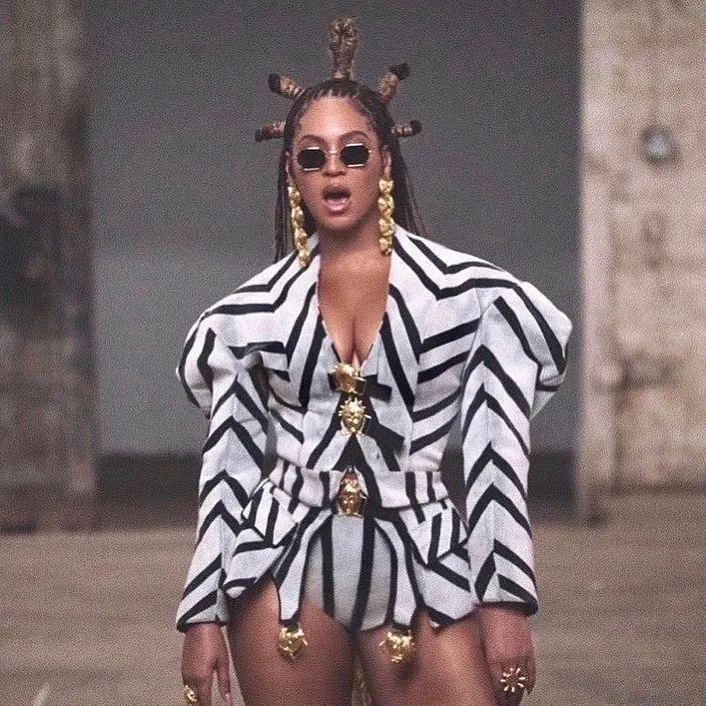
Beyoncé wearing a look from Loza Maléombho in the singer’s Black Is King film. (Photo Credit: Disney Plus)
Historically, the relationship between the global fashion industry and Africa has been indisputably problematic, filled with disrespect, cultural exploitation, and appropriation. From the exploitation of Ankara textiles — West Africa’s most recognizable fabric — to western fashion houses profiting from the creations of local African artisans and designers, the line between inspiration and plagiarism has become blurred.
According to Dr. Shameem Black, from the Department of Gender, Media and Cultural studies at the Australian National University, “borrowing from other cultures becomes problematic when historical context and cultural sensitivities are ignored.” By calling out designers who exploit another culture’s traditions has enabled African designers to use their rich history, culture and textiles to gain world-wide attention.
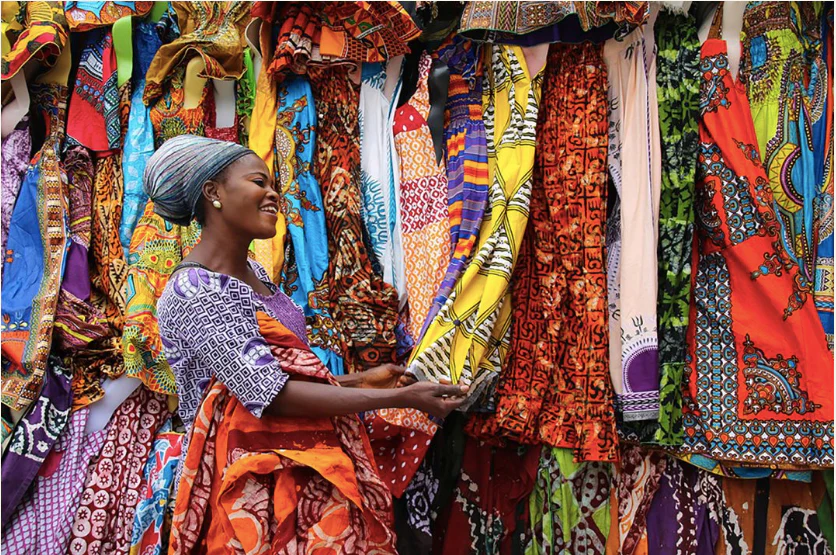
Ankara Fabrics. (Photo Credit: Waa Fashion)
Africa’s Fashion Capital
In just the past few years Lagos, Nigeria has become Africa’s fashion capital. Recognized by some of the world’s most renowned fashion editors and industry insiders, Lagos Fashion Week, and Arise Fashion Week in particular, has earned supermodel Naomi Campbell’s seal of approval. The supermodel made her debut walking the Arise Fashion Week runway in 2018 and returned in 2019, taking on a curatorial role. Emerging designers across the continent have also made their way onto the global stage. Nigerian designers Adebayo Oke-Lawal and Kenneth Ize, were both finalists for the LVMH Prize in 2014 and 2019 respectively, as well as South African designer Thebe Magugu, who actually won the Prize in 2019. For those unfamiliar with the LVMH Prize, it is a prestigious award given to young fashion designers by reputable designers in the industry.
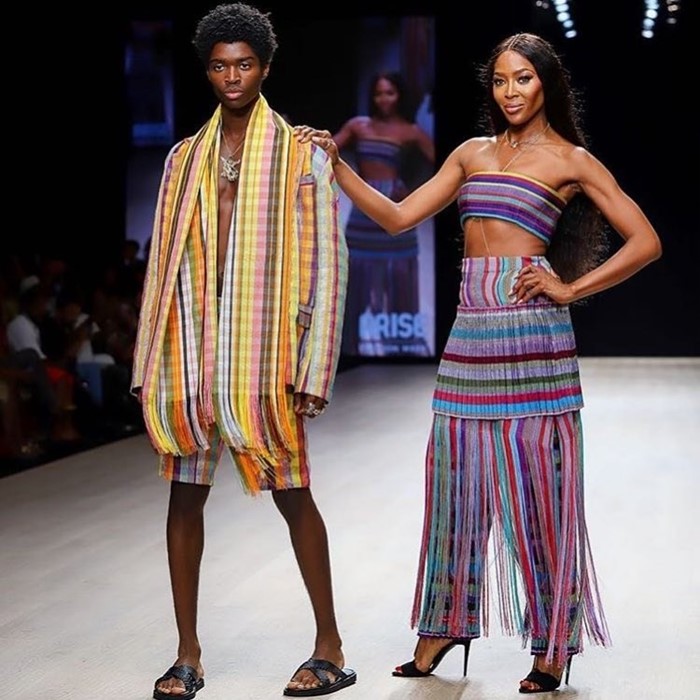
Naomi Campbell walks Kenneth Ize’s fashion show at Arise Fashion Week in 2019. (Photo Credit: Kenneth Ize)
African fashion no longer needs the ‘approval’ of the global industry, because they are now a force to be reckoned with on their own. Sparking this evolution are trailblazing young African designers who have taken the initiative to create innovative work that tell stories and break stereotypes, while at the same time preserving age-old techniques, as they simultaneously build viable global fashion businesses.
These creatives not only deserve props for their spectacular work, but they are changemakers in their own right, helping to uplift Africa’s developing economy, standing up for equality, climate action, and setting a new standard for all African designers, thus ensuring their place in the global fashion world.
How to describe African design? African design is audacious and revolutionary. Nigeria’s Adebayo Oke-Lawal and Fola Francis are designers who are pushing boundaries and challenging gender stereotypes. Meanwhile, Congolese designer Anifa Mvuemba is credited as being the first designer to curate a 3D virtual fashion show for her brand, Hanifa, which went viral in 2021.
According to Statista (a German company specializing in market and consumer data), the fashion industry is the fourth largest industry in the world with global revenue in 2021 worth $1.5 trillion. Therefore, the success of the African fashion industry could have a huge impact on that continent’s economy, especially since they have the highest rate of poverty in the world. A robust African fashion industry could exponentially alter their lives.
As the fashion industry thrives in Africa, there will be more employment opportunities, investments in development and increased global recognition, not only for fashion designers, but also for the local tailors, artisans and entrepreneurs. Many fashion brands in Africa are now creating programs to provide resources, support community growth, and empower citizens who want to work in the fashion industry.
UoF is playing a part in their success
Here are just a few globally recognized African fashion brands that are making a difference:
AHLUWALIA
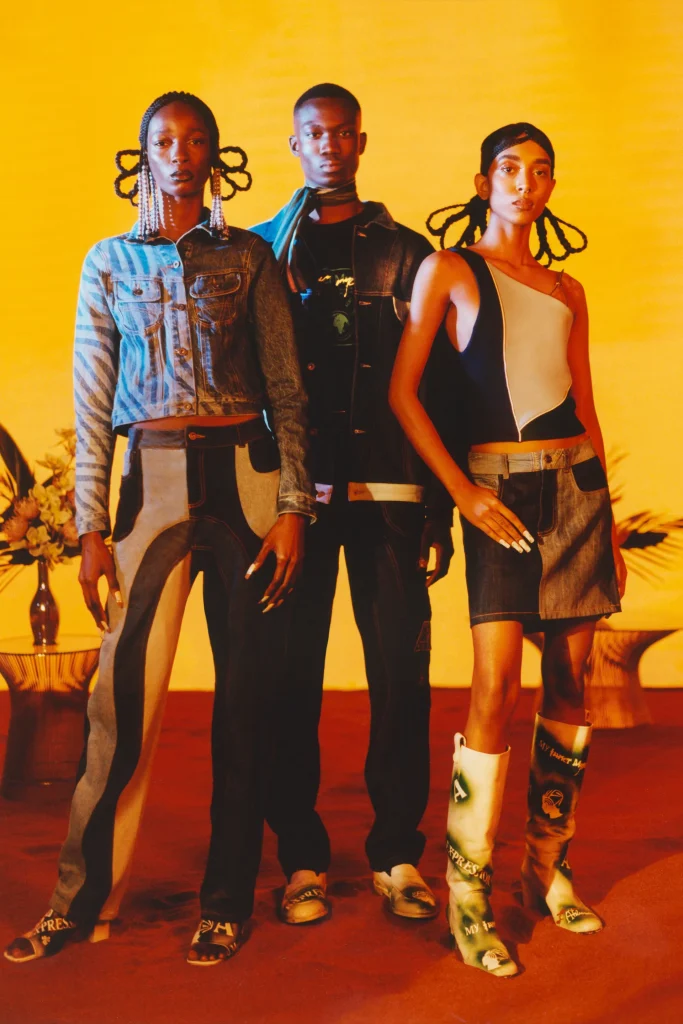
Looks from Ahluwalia’s Spring 2022 Collection. (Photo Credit: Vogue Runway)
Priye Ahluwalia, founder of the brand Ahluwalia, was born in London to a Nigerian father and an Indian mother. Drawing inspiration from both her Nigerian and Indian heritage, she designs award-winning ready-to-wear menswear.
Ahluwalia was one of the recipients of the prestigious LMVH prize in 2020 and the following year won the Queen Elizabeth II Award for British Design. Ahluwalia’s label also focuses on being environmentally friendly using vintage and dead-stock (discontinued and vintage items that are no longer in stock) clothing for a number of her creations.
THEBE MAGUGU
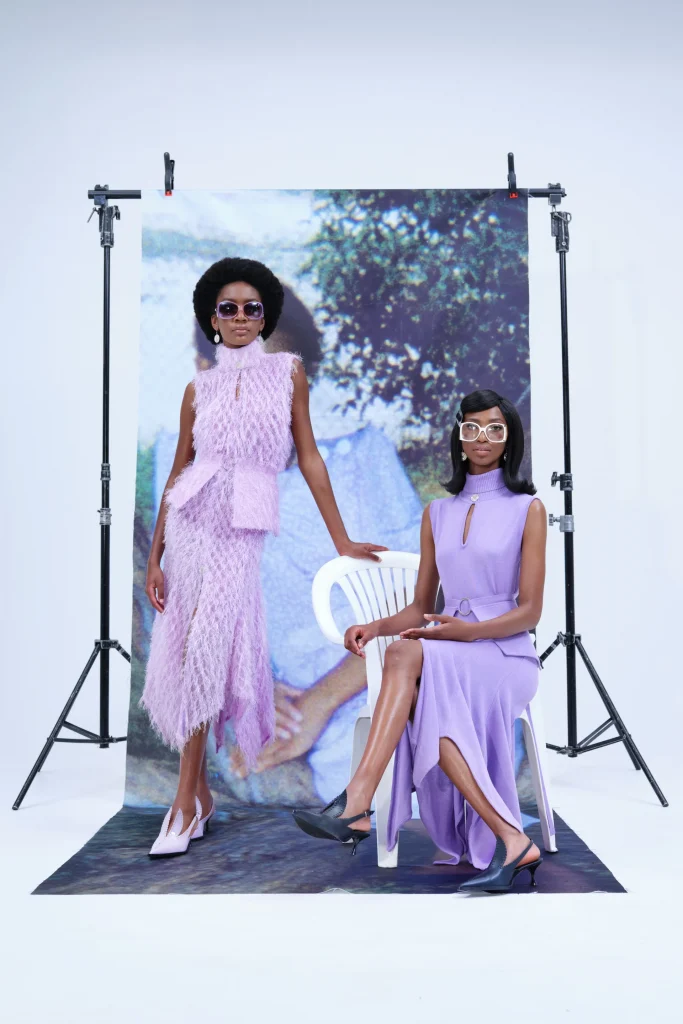
Looks from Thebe Magugu’s Spring 2022 Collection. (Photo Credit: Vogue Runway)
Thebe Magugu founded his luxury namesake collection in 2016. Through fashion, the South African fashion designer tells the stories of his heritage and culture while bringing important issues into the limelight. In his past collections, he has made commentary on sexism in South Africa, South Africa’s apartheid past, and femicide — with South Africa’s President Cyril Ramaphosa describing gender-based violence as “the second pandemic we are confronting” in November 2020.
Magugu primarily designs exquisite ready-to-wear clothing for women.
In 2018, Magugu won the LVMH prize and has since been featured in a variety of magazines including Vogue.
ORANGE CULTURE
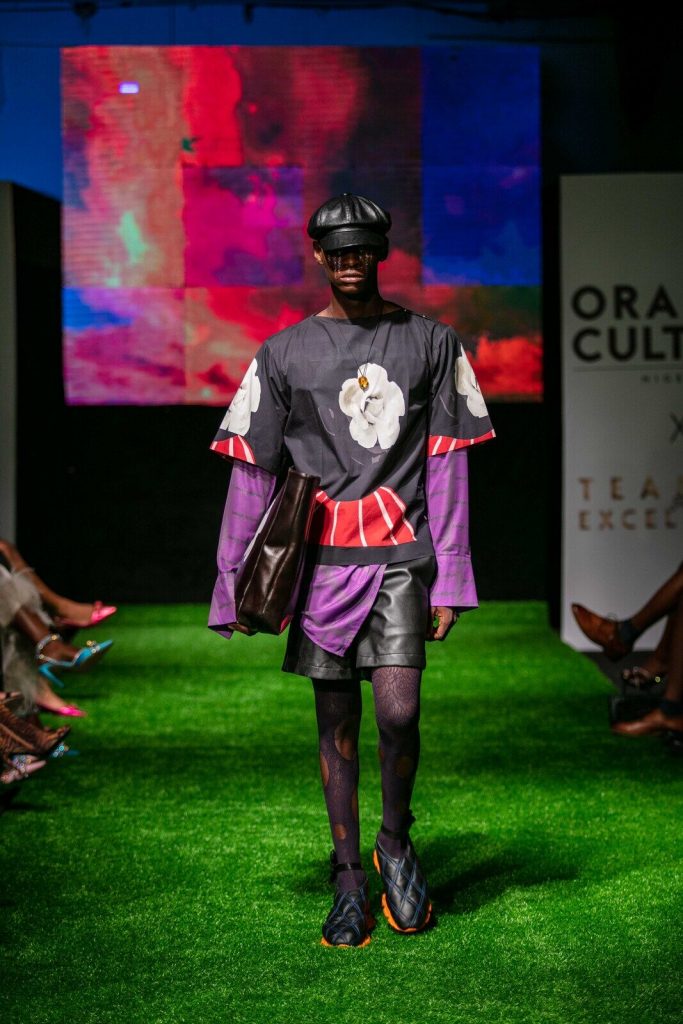
A look from Orange Culture’s Spring 2022 Show. (Photo Credit: Orange Culture)
Orange Culture was founded in 2011 by Adebayo Oke-Lawal, a Nigerian fashion designer. His beginnings are those of a true millennial, as Oke-Lawal has been designing clothes since he was only eleven years old and is self taught. Today, Oke-Lawal is one of the most prestigious designers in Africa.
The brand Orange Culture is best known for their innovative menswear, which has been worn by African celebrities like Global Citizen advocate Davido, Rita Dominic, and Ice Prince. It was also the first Nigerian brand to sell their clothing at the iconic UK department store, Selfridges.
Through the brand’s Orange Mentorship program, they provide mentorship and resources to young fashion designers throughout Africa to help them build their fashion empire.
HANIFA
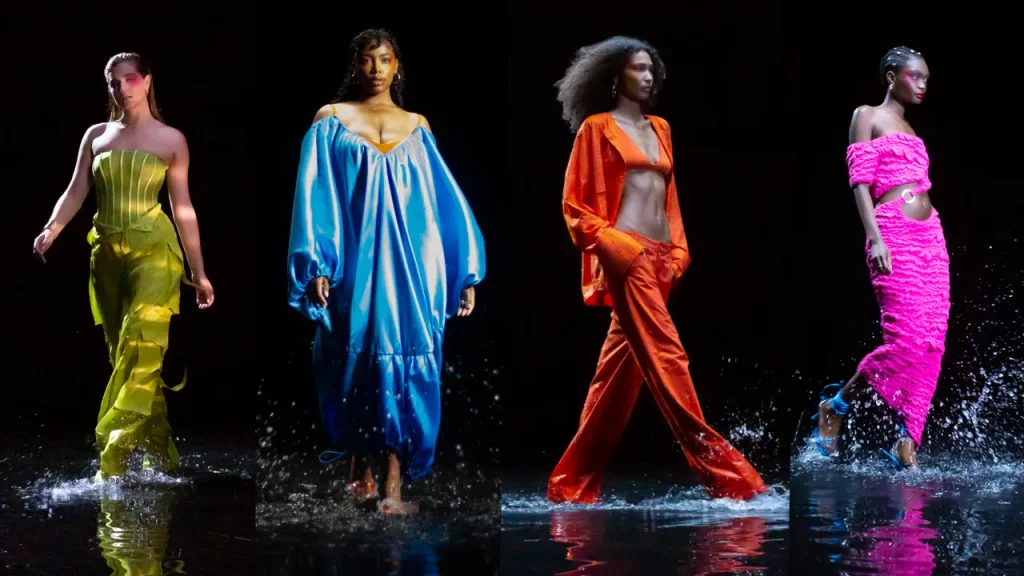
Looks from Hanifa’s Spring 2022 Digital Show. (Photo Credit: Hanifa)
Anifa Mvuemba is a Congolese designer best known for her viral 3D fashion show that combined two passions, fashion and technology, in an epic presentation of her brand, Hanifa, during the height of COVID-19 in 2021.
Mvuemba founded Hanifa 10 years ago and the brand has since become known for its mesmerizing size inclusive ready-to-wear. Her debut show was held at the National Portrait Gallery on Nov. 16, 2021 Washington, D.C. with over 20,000 people streaming the show on YouTube.
This talented designer is also the founder of The Hanifa Dream, a program that empowers women-owned organizations that “elevate fashion through passion, purpose, and social impact.”
CHRISTIE BROWN
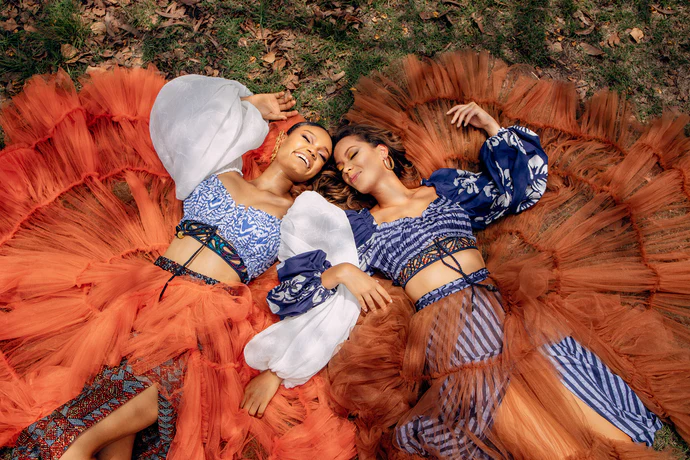
Looks from Christie Brown’s Spring 2022 Collection. (Photo Credit: Christie Brown)
Aisha Ayensu is a Ghanaian fashion designer and the creative director for the label Christie Brown, which was founded in March 2008.
The luxury brand, named after Ayensu’s grandmother, creates innovative and exceptional women’s ready-to-wear apparel and accessories. Ayensu reimagines traditional clothing and gives them a modern twist.
TONGORO
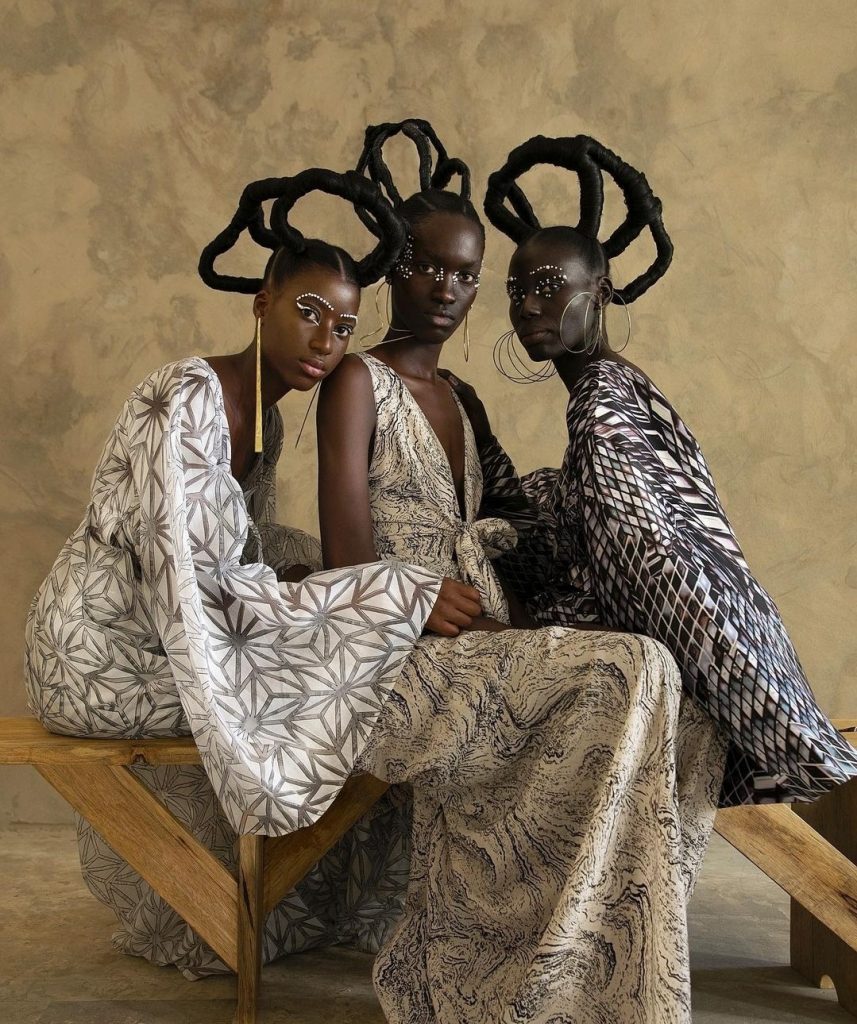
Looks from Tongoro’s Spring 2022 Collection. (Photo Credit: Tongoro)
Tongoro is a ready-to-wear womenswear brand that produces playful and unique apparel. The label was founded in 2016 by Sarah Diof, a woman of Senegalese, Central African, and Congolese heritage. The fashion company’s headquarters are in Dakar, Senegal. Tongoro sources their materials from artisans across Africa, and Diof primarily works with local tailors as a way of fostering the economic development of artisans throughout Africa.
IMANE AYISSI
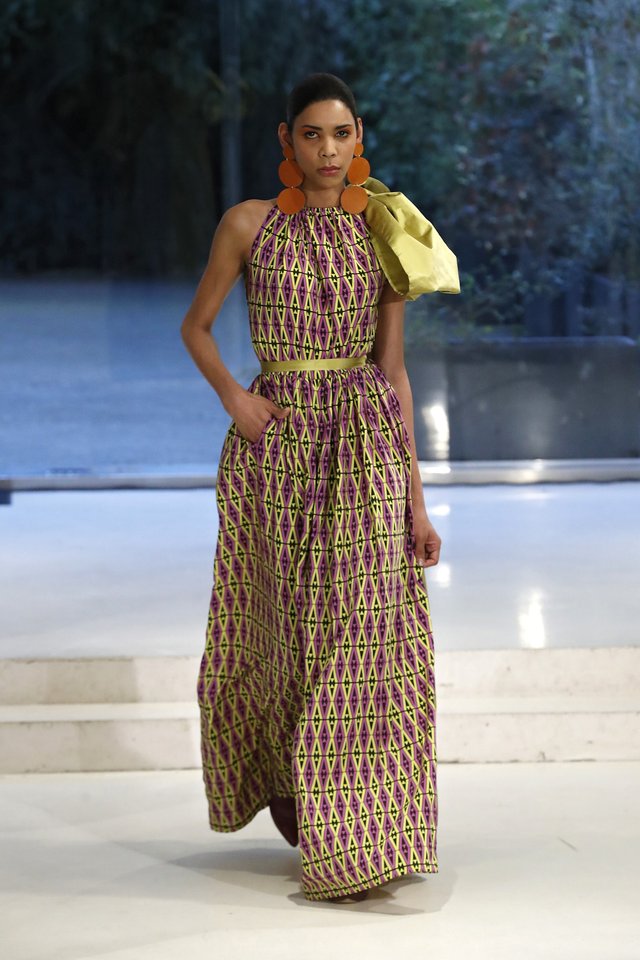
A look from Imane Ayissi’s Couture Spring 2022 Collection. (Photo Credit: Show Studio)
Imane Ayissi is not only a fashion designer but is also a model and a dancer. Pryor to starting his fashion label, Ayissi was a sought-after model who walked for luxury fashion houses like Dior, Givenchy, Valentino, YSL and Lanvin.
The Cameroonian designer draws inspiration from cultures all over the African continent. Ayissi not only creates luxurious ready-to-wear pieces, but he is also an advocate for environmentally friendly fashion and often uses natural and organic materials that make the least amount of impact to the environment.
AFRICA FASHION EXHIBITION
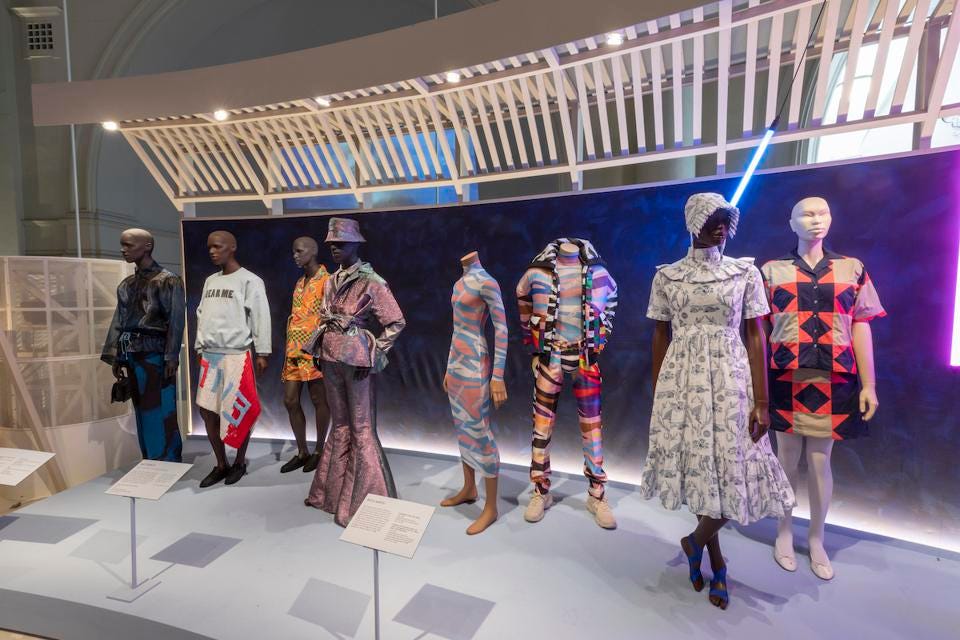
Africa Fashion exhibition at the Victoria and Albert Museum, London. (Photo Credit: V&A Museum)
If you happen to be ion London between now and April 16, 2023, then be sure to catch the Africa Exhibit at the V & A Museum which spans iconic mid-20th century to contemporary creatives through photographs, textiles, music and the visual arts.
And…
Speaking of textiles, we recently launched two lessons in our 5-part series on West African textiles by Mina Dia-Stevens. Broaden your knowledge of Africa and learn about the Faso Dan Fani Cloth of Burkina Faso and the Bògòlanfini textiles of Mali.
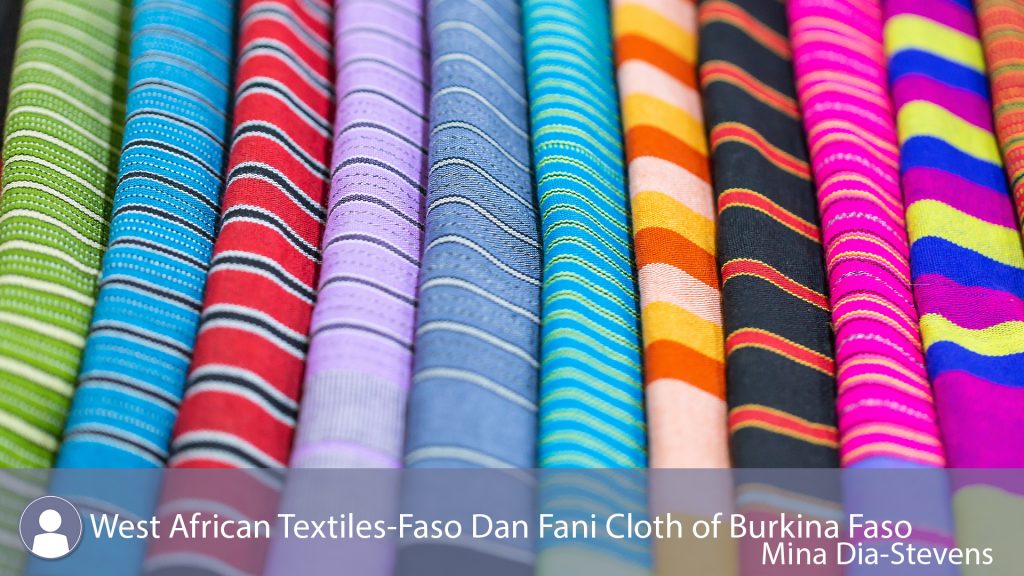
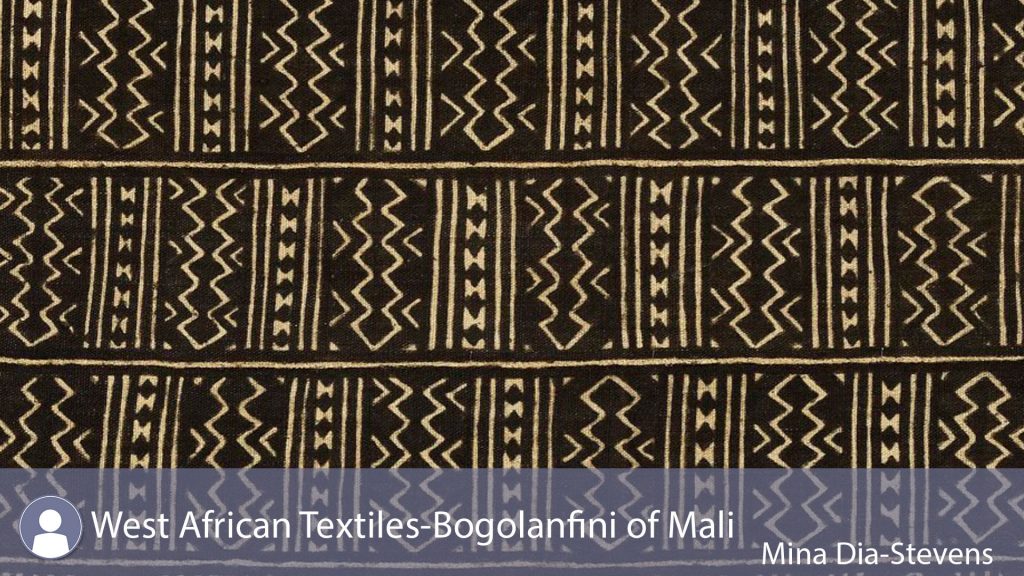
So, tell us, do you know of other African designers you’d like to share with us?
-------------------------------------
By: Antonia Sardone
Title: OUT OF AFRICA: AFRICAN DESIGNERS ARE FINALLY ON THE FASHION MAP
Sourced From: www.universityoffashion.com/blog/out-of-africa-african-designers-are-finally-on-the-fashion-map/
Published Date: Sun, 28 Aug 2022 23:55:29 +0000
Read More
Did you miss our previous article...
https://edmmusic.news/fashion-clothing/university-of-fashions-certificate-program-goes-live
 FestivalsMusicNew ReleasesArtistsFashion & ClothingVideosPrivacy PolicyTerms And Conditions
FestivalsMusicNew ReleasesArtistsFashion & ClothingVideosPrivacy PolicyTerms And Conditions
